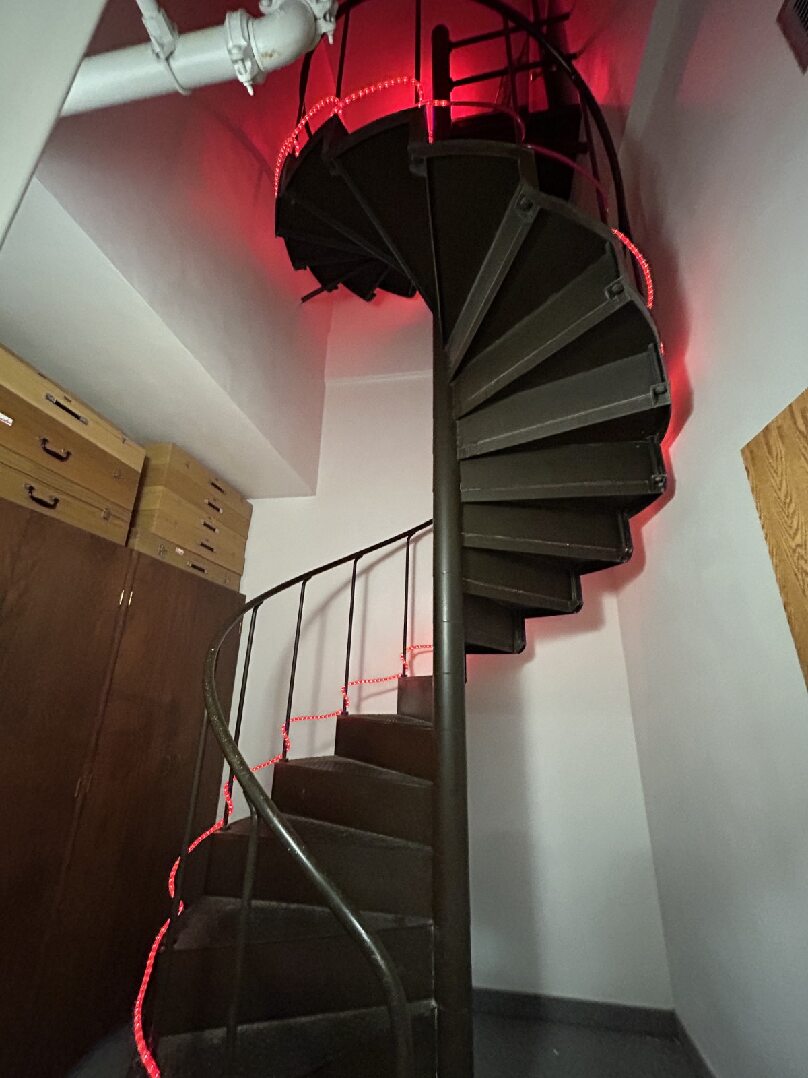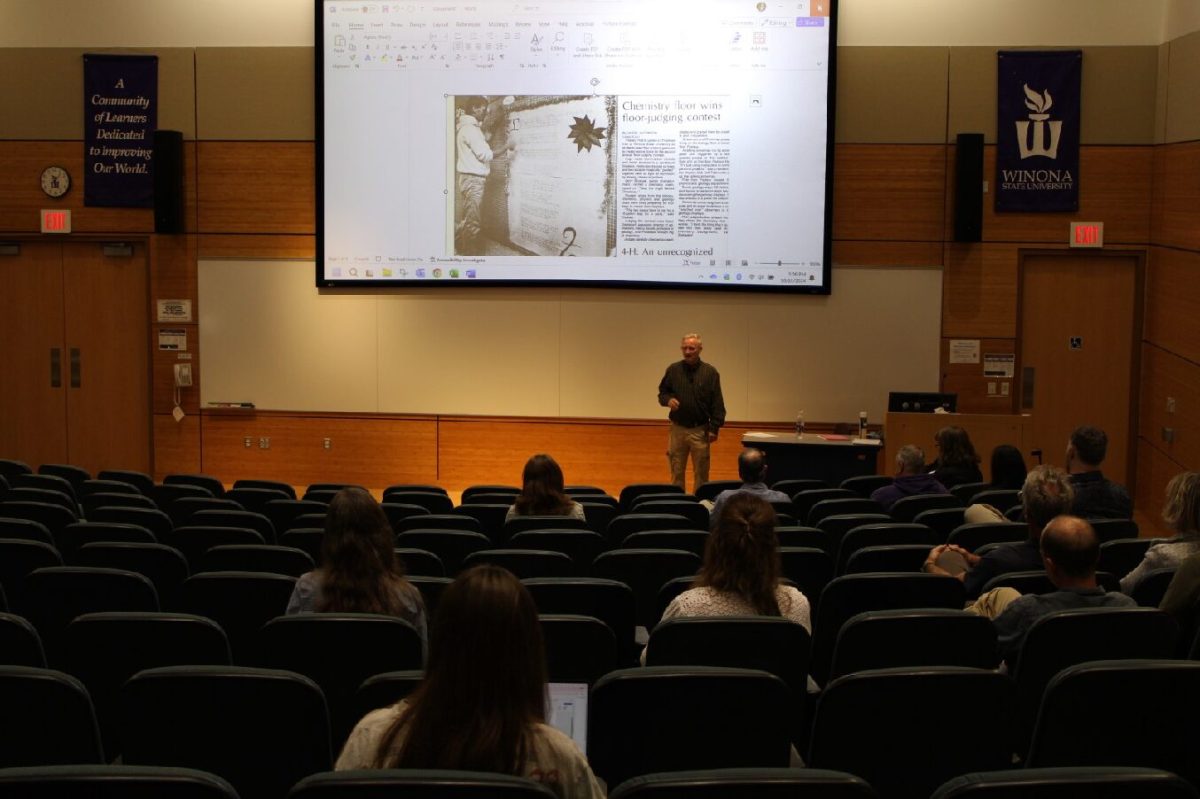Fast food restaurant creates controversy at Winona State
Sara Tiradossi / Winonan
The possibility of opening a Chick-fil-A restaurant at Winona State University was denied by Student Senate at a Wednesday, Feb. 8 meeting in a five to 17 opposed vote.
The idea was recently brought to the table as part of Chartwells Dining Serivce’s plan to renovate the Smaug area of Kryzsko Commons
As Winona State’s food service provider, Chartwells developed the proposal and wanted the student senators to review the idea, Student Senate member Adam Thompson said. The proposal was discussed for about a month among the senate’s members until it was disapproved.
As part of the original plan, a representative from Chik-fil-A came to Winona State and spoke with the president’s cabinet as well senators to address students’ concerns regarding past controversies surrounding their company.
The controversy was about current political stances, statements and donations to anti-LGBTQ organizations made by Chick-fil-A, Thompson said.
“The university was concerned on how we would represent ourselves to LGBTQ and how that would work with students on campus,” Thompson said.
On the other side of the spectrum, junior class Senator Max Gonzalez said he looked into the research of the chain from the past and noticed some of the donations had ceased since 2012. Therefore, he said, Chick-Fil-A has distanced itself from the controversy.
His decision to vote ‘yes’ weighed on where some of the money went to and how much of the money went to the groups associated with the controversy.
When making his vote, Gonzalez also took into account the size constraints in the Smaug area and the cost other bigger franchise chains would have meant for the university.
Gonzalez said Chick-fil-A would have been a more affordable option, instead, without requiring Chartwells to pay the franchising fee, which would have added up a lot in the investment.
In the debate, another big concern included with the possibility of opening a Chick-fil-A was the lack of healthier choices. Even if the chain argues they are healthier because they use fresher chicken, Thompson said, it would not be the same as having a salad bar.
To find out how students felt about the issue, Gonzales gathered over 287 students’ perspectives on the topic, asking whether they were in favor or not or whether they did not care. His survey was taken during three different days and at three different times of the day in the area where the chain was supposed to be located.
From the survey, Gonzalez said a wide variety of students expressed their support into bringing a Chick-fil-A on campus.
As the junior class representative, he paid a lot of attention to the junior class, and found out more than 87 percent of the students were in favor of the proposal.
“It was important to know what the actual students wanted,” Gonzalez said.
Director of Chatwells Dining Services John Sinniger said Chartwells expects to spend more than $1 million in a planned Smaug renovation.
According to Sinniger, the idea of bringing a national chain to campus came up when the university’s food committee was asked to pursue a national concept to the forefront.
Sinniger said Chartwells brought in its national director of retail strategy who mentioned Chick-fil-A is one of the more popular choices for university campuses. When looking at data from other campuses, he said there are 260 Chick-fil-A restaurants in other universities, 85 of which are ran by Chartwells. For instance, St. Cloud State University just introduced a new Chick-fil-A, and it instantly became their most popular option, he said.
“That being said, we wanted to introduce it here, too,” Sinniger said.
Sinniger said he wanted students to identify and recognize a brand with the hope to attract many students to buy meal plans. When selecting a new option, these are important concepts to take into account, he said.
“If you don’t give students something new and don’t work the menu structure into what they are looking for, they won’t buy the meal plan,” Sinniger said. “If you keep something that’s beyond tired, it’s not attractive anymore.”
According to Sinniger, a Chick-fil-A would have met space parameters, costs and menu pricing.
When dealing with a national concept, Sinniger said the process involves plenty of options and ideas to consider, along with the need to meet the university’s rules and the chain’s own set of rules. A site survey that includes spacing, enrollment, campus size, profit and costs are sent to a potential restaurant that is considering opening a space at the university. After that is done, the process of creating contracts begins.
At first, when the idea was brought to the table, Sinniger said he was not expecting nor meaning for the issue to be controversial, but rather, he thought it would be worth introducing to the university.
Sinniger added the students’ ideas and expectations at Winona State campus could be different from those on other campuses, since every university is different.
“It has brought more concerns than what I was anticipating. I did what I was asked to do,” Sinniger said.
For some students, the controversy surrounding Chick-fil-A was enough for them to not want the restaurant on campus. Public administration junior Elijah Morris-Holliday said he was against the motion as an advocate for the LGBTQ community.
“We all have human rights, and those rights have to be protected,” Morris-Holliday said.
Morris-Holliday said he appreciates the time senate spent on the matter because the decision reflected what students wanted. He said there should be other concepts to look into that would fit within the university’s budget and a greater variety of options to attract more students.
first-year English major BriShaun Kearns also said she is glad the motion did not pass and would rather renovate and invest on the options currently on campus.
“Chick-fil-A wouldn’t have been a good option for us,” she said.
Other students saw benefits from the chain’s presence on campus.
Senior Tim Hall said he was in favor of having a Chick-fil-A on campus because it would have offered better food options than the current ones. He added Chick-fil-A was a convenient chain because Chartwells did not have to pay a franchising fee.
“The only realistic option would have been opening a Chick-fil-A. There was a great potential of profit involved,” Hall said.
Sinniger said within the next month, Chart-wells will explore new options. It is important to invest on the university’s facilities because after some time they become they need updating, he added.
“It’s always good to renovate and refresh areas from time to time,” Sinniger said. “We try to be proactive and stay on the cutting edge of change and look. We are back to the beginning stages. But this is not the end of the world.”
By Sara Tiradossi















































